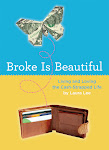Play a second game of Monopoly. This time... players start the game differently. Player ONE begins the game already owning Boardwalk and Park Place as well as all the Green Properties – all with hotels already on them, all the Railroads, and both utilities... What [some people] wrongly assume is that our society and our world is the first game of Monopoly—that we all start on a level playing field, playing by the same rules with all the same advantages and disadvantages. The reality is that we live in the world of the second Monopoly game. It is not a rigged game so much as we are all born into the game in different circumstances and in different places. That simple fact has much to do with the lack of economic and social justice we experience (or do not experience). . . . Making it and surviving should be something available to everyone everywhere.
Instant Pot Christmas Roast
6 years ago






